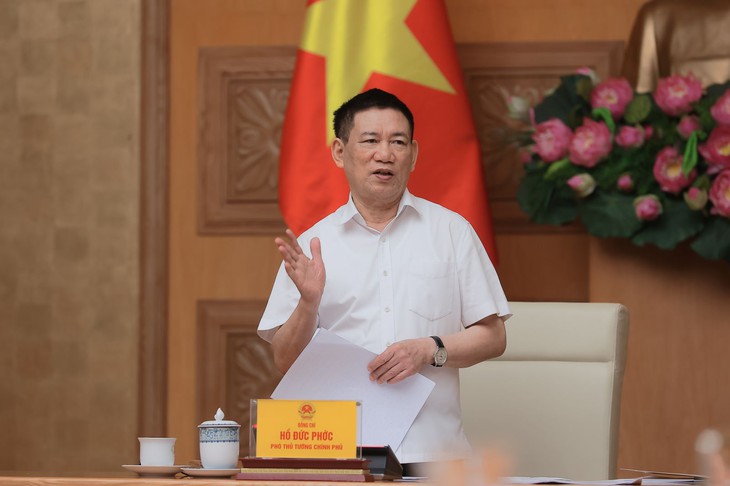On August 5, Deputy Prime Minister Ho Duc Phoc chaired a meeting of the Steering Committee on Price Management to review price control results over the first seven months and outline plans for the remaining months of 2025.
According to the Ministry of Finance, the Consumer Price Index (CPI) for the first seven months is estimated to rise by 3.2-3.3%, a reasonable level given the focus on maximizing economic growth. Vietnam’s inflation remains within the target range.
What factors will influence prices by year-end?
However, the Ministry of Finance forecasts several pressures on prices in late 2025, including imported raw material costs, construction material prices, food and beverage prices, apparel costs, state-regulated goods, and increasingly severe climate change impacts.
On the other hand, some factors may ease price pressures, such as abundant domestic food supply, tuition waivers for public school students from kindergarten through high school, a 5-20% reduction in textbook prices, and tax cuts.
Therefore, the ministry projects year-end inflation scenarios ranging from 3.7% to 4.0%. International organizations estimate Vietnam’s average inflation at 2.9-4.2%, leaving room for monthly increases of 1.19-1.58% to meet the target of 4.5-5.0%.
In conclusion, the Deputy Prime Minister emphasized the critical importance of price management. Strengthening reasonable price controls is essential to promote rapid and sustainable growth.
Special attention must be paid to essential goods affecting public livelihoods and business operations, such as fuel, electricity, rice, and meat, with readiness to implement appropriate management measures.
Additionally, comprehensive solutions are needed to ensure a stable real estate market, manage money supply, stabilize exchange rates, regulate electricity and construction material prices, and monitor input costs for production.
Tight monitoring of domestic price fluctuations, especially for essential goods and services, along with flexible supply-demand adjustments, is crucial to prevent shortages, price surges, and inflation while ensuring social welfare.
Focus on essential goods
The Deputy Prime Minister also urged ministries and localities to closely monitor supply-demand dynamics and market prices in their respective sectors. Proactive forecasting and balanced supply plans are needed, particularly during peak demand periods for essential goods.
Effective implementation and supervision of price declaration, listing, and transparency measures are required, along with strict penalties for unreasonable price hikes that destabilize markets.
Fiscal policies must coordinate with other measures to stabilize the macroeconomy, control inflation, and maintain key economic balances.
Enhanced communication and transparent information on price trends—especially for critical materials and essential goods—are necessary to curb inflation expectations and stabilize consumer and business sentiment, particularly during holiday seasons.
On the afternoon of August 4, Prime Minister Pham Minh Chinh chaired a government standing committee meeting on socio-economic developments in preparation for the upcoming regular government session in July 2025.






